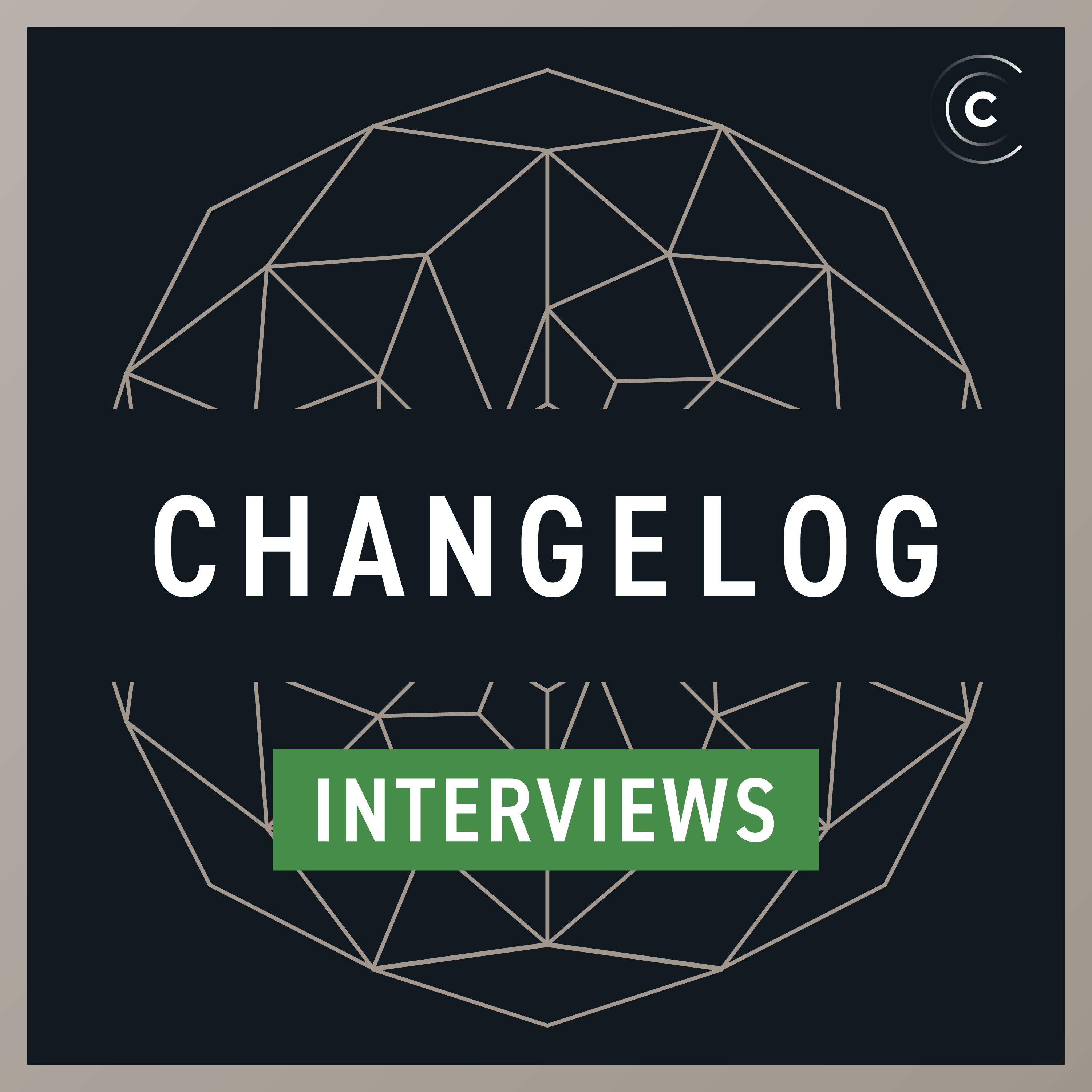Discover The Changelog: Software Development, Open Source
The Changelog: Software Development, Open Source

737 Episodes
Reverse
Paul Orlando is back to talk about his book titled “Why Now?” You may remember Paul from his last appearance (a fan favorite) talking with Jerod about complex systems & second-order effects. Paul’s book, “Why Now?” explores the concept of timing and the importance of understanding the ‘why now’ in business and product development. We discuss timing examples from the book that were either too early or too late (such as the first video phone and car phones), the need to consider both technological advancements and user demand when assessing timing, the significance of timing in the success of companies like Apple and the launch of the iPhone, Uber and Heroku, and more. Also, join our Slack community for a chance to get a signed copy of Paul’s book.
Bahaa Zidan says your web framework doesn’t matter, DHH writes about magic machines, Dylan Huang reviews thousands of opinions on HTMX, Tim Ottinger says programming is thinking & Tim Spann says small language models (SLM) for the win.
Our friend Ron Evans is a technologist for hire, an open source developer, an author, a speaker, an iconoclast, and one of our favorite people in tech. This conversation with Ron goes everywhere: from high-altitude weather balloons, to life on Mars, to Zeno’s paradox applied to ML, to what open source devs should learn from the Wu-Tang Clan & more.
This week we’re joined by Dustin Bluck to discuss his acquisition of the well known (and beloved) Castro podcast app to take it indie-focused once again. As previous users of Castro, we were excited to dig into the details behind this popular podcast client to see what’s next, how the deal was done, a peek into the code, and where exactly this indie and creator focused podcast app can go.
Daniel Hooper lists out all the good ideas in computer science, Jeff Geerling declares 2024 the year corporate open source dies, Jared Turner says all kinds of works-in-progress are waste, Daroc Alden covers the leadership crisis in the Nix community & John Hawthorn explains why Ruby may be faster than you think.
Frequent guest (and almost real-life-friend) Adam Jacob returns to share his spicy takes on all the recent “open source meets business” drama. We also take some time to catch up on the state of his open source-based business, System Initiative.
This week we’re joined by Louis Pilfold, the creator of the Gleam programming language. For the uninitiated, Gleam is a functional programming language for building type-safe systems that compiles to Erlang and JavaScript and it’s written in Rust. We discuss the inspiration and development of Gleam, how it compares to other languages, where it shines, the overwhelming amount of support Louis is getting through GitHub sponsors, what’s next for Gleam and their near-term plans for a language server.
Forrest Brazeal is concerned about the open source threat from within, Vicki Boykis explains why Redis is forked, John O’Nolan and the Ghost team plan to federate over ActivityPub, Llama 3 is now available for “businesses of all sizes” & nolen writes up questions to ask when you don’t want to work.
If Changelog News had an extended edition, this might be it! Jerod & Adam discuss Hashicorp’s Cease and Desist letter, Redis getting forked, Boston Dymanics’ scary cool new robot, Justin Searls’ extensive use of the Apple Vision Pro, Thorston Ball moving from Vim to Zed, Firefox becoming hard to use, Beeper joining Automattic & more.
This week Adam is joined by Thomas Paul Mann, Co-founder and CEO of Raycast, to discuss being productive on a Mac, going beyond their free tier, the extensions built by the community, the Raycast Store, how they’re executing on Raycast AI chat which aims to be a single interface to many LLMs. Raycast has gone beyond being an extendable launcher – they’ve gone full-on productivity mode with access to AI paving the way of their future.
YouTuber “Internet of Bugs” breaks down why AI “software engineer” Devin is no Upwork hero, Redka is Anton Zhiyanov’s attempt to reimplement Redis with SQLite, OpenTofu issues its response to Hashicorp’s Cease and Desist letter, Brian LeRoux introduces Enhance WASM & PumpkinOS is not your average PalmOS emulator.
Our beat freak in residence returns, this time to discuss the shiny new Dance Party album! We deconstruct its nostalgic mix, break down some of our favorite tracks & even learn that BMC is writing a mysterious book…
This week we’re talking to Scott Chacon, one of the co-founders of GitHub, to discuss the history and future of Git and Scott’s new project Git Butler, a branch manager tool that’s aiming to improve the developer experience of Git using Git. We also touch on the contentious topic of open source licensing and the challenges of defining “Open Source”, FSL vs GPL, and more.
HashiCorp sends OpenTofu a nasty-gram in the wake of Matt Asay’s infringement claims, Polar is like Patreon but for software creators, a Common Corpus of LLM data is released on HuggingFace & Loki is an open source tool for fact verification.
Thisis our 14th Kaizen episode! Gerhard put some CDNs to the test, we’ve taken our next step with Postgres on Neon & Jerod pushed 55 commits (but 0 PRs)!
This week Adam is joined by Zeno Rocha — the creator of the beloved Dracula theme and Co-founder and CEO of Resend. They discuss his personal journey and the challenges of balancing work and family life, how becoming a parent has given him new perspectives and influenced his decision to start his own company, the role of citizenship and immigration in his journey, how he prepared for the Y Combinator interview, meeting Paul Graham, the challenges of sending email, and the future of Resend and the possibility of a Series A round.
The big story right now is the recently uncovered backdoor in liblzma (aka XZ) – a relatively obscure compression library that happens to be a dependency of OpenSSH. This incident is noteworthy for so many reasons: the exploit itself, how it was deployed, how it was found, what it says about our industry & how the community reacted. Let’s dig in!
Which is smarter: specializing in a particular tech or becoming more of a generalist? It depends! Which is why Jerod invited “undercover generalist” Adolfo Ochagavía on our “It Depends” series to weigh the pros & cons of each path.
Script flipped! Today we’re sharing two interviews of us on Other People’s Podcasts (OPP): Kathrine Druckman from the Open at Intel podcast invited us on the show at KubeCon NA in November and Den Delimarsky hosted Jerod on The Work Item podcast in February.
Redis’ re-licensing prompts forks like Drew DeVault’s Redict, Matthew Miller thinks we need more community built software, Paul Gross makes the case that DuckDB is the new jq, Anton Zhiyanov shares how he makes a living as a developer despite being “pretty dumb” & Baldur Bjarnason chimes in on the state of the web developer job market.










